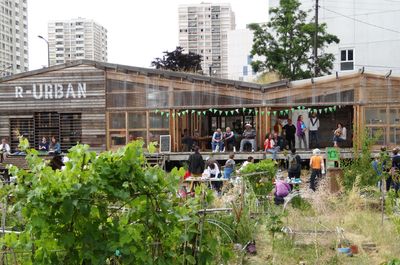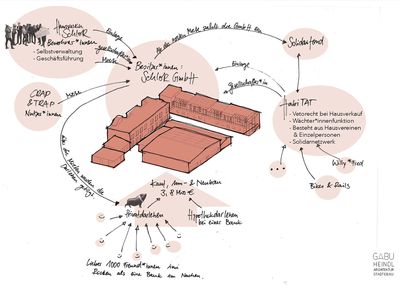Resilience and the Unsolved Project - Gabu Heindl & Doina PetrescuUrban & Environmental Theory Session EPFL
Common Ownership and Nonsolution: Contexts, Conflicts, Contradictions
What can be the role of a critical architect in the future? How can we engage in the complexities of socially and ecologically burning issues? A radical-democratic conception of architecture and urbanism connects with the agency of democratic social and political movements. While the planner brings her expertise into alliances with, eg, anti-racist or feminist politics, she enters into counter-articulations not without critically examining her own role as bearer of knowledge and, thus, authority. What is at stake is a self-distancing of the expert – while taking responsibility and employing knowledge and planning tools, especially when commons have to be defended/expanded against capitalist takeovers.
While architecture is too often prone to narrowing the scope of their concerns and, therefore, to practices of “solutionism”, I would rather tackle socio-political contexts, conflicts and contradictions by offering for discussion the concept of “nonsolution”. I will unfold these topics with regard to my architectural practice within current anti-capitalist and intersectional struggles over housing and public space as well as in correspondence to the research at our new department at Kassel University on issues of ownership and, more generally, political economy within architecture and urban planning.
Gabu Heindl
Commons-Based Urban Resilience
At a critical moment of societal crisis due to resources depletion and planetary Climate Change, urban commons can contribute and offer solutions to the complex process of transition towards more resilient forms of governance at different scales. In the context of suburban neighbourghoods, enabling the emergence of commons can be a resilient alternative to the current urban regeneration approaches. This process needs agencies and actors, and architects can play an important role. In order to provide an example in this sense, we take the case of R-Urban, a project initiated by atelier d’architecture autogérée as a commons-based network of civic resilience implemented in Parisian suburbs. The network consists of resilience hubs located in mass housing estates and deprived communities, which are collectively managed by inhabitants. In such an approach, the role of architects and designers is to act as initiators, designers, and co- managers of the project, sustaining the emergence of those urban commons through diverse local alliances. However, in a political context in which the welfare principles have been replaced by market principles (often sustained by the State), and in which the commons project challenges directly the current neoliberal capitalist process of accumulation, extraction and enclosure, keeping this role for architects is a challenge.
Doina Petrescu

